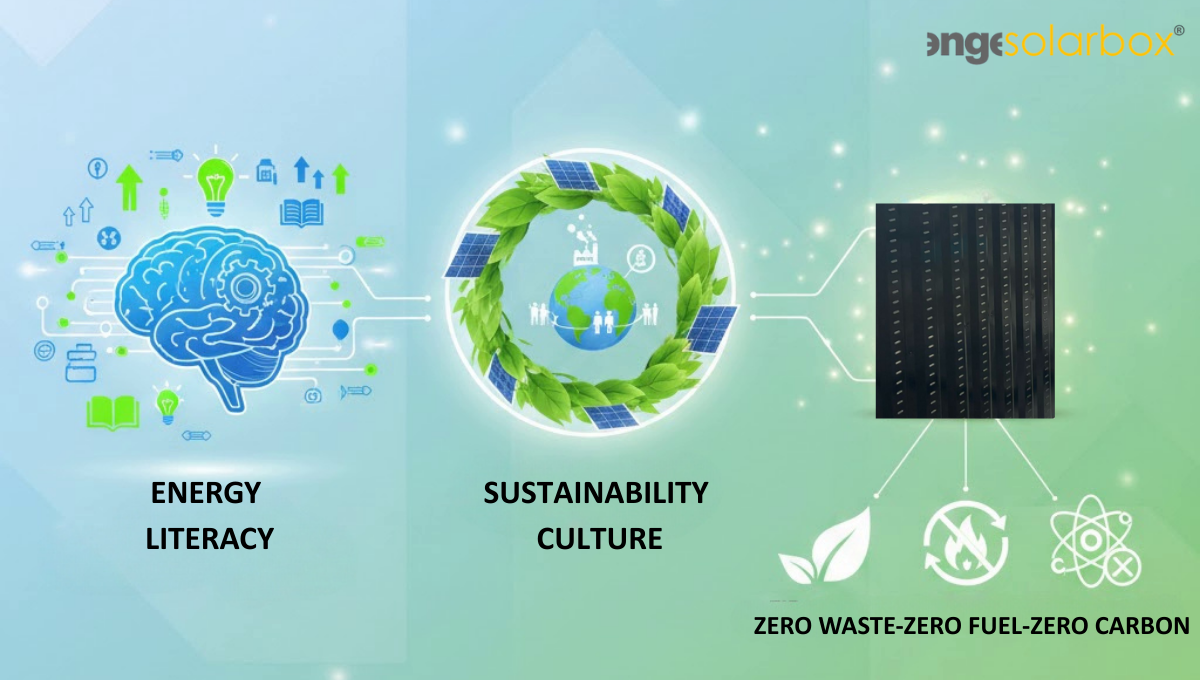
How Can We Reduce Our Carbon Footprint?
Reducing the carbon footprint, which is one of the main causes of global warming and climate change, is critically important both for the environment and for future generations.
The carbon footprint refers to the total amount of greenhouse gases released directly or indirectly into the atmosphere by individuals, businesses, and societies. Reducing the carbon footprint, which is one of the main causes of global warming and climate change, is critically important both for the environment and for future generations. There are many methods to reduce carbon emissions, such as using renewable energy, saving energy, adopting sustainable transportation, and developing conscious consumption habits. In this article, we will discuss how we can reduce our carbon footprint and how Enge Energy’s renewable energy solutions can contribute to this effort.
Increasing the Use of Renewable Energy
Fossil fuels are the main sources that cause the highest carbon emissions during energy production. Switching to renewable energy is one of the most effective ways to reduce the carbon footprint.
Using Solar Energy
Solar energy enables electricity and heat production without creating direct carbon emissions. By installing solar energy systems in homes, workplaces, and industrial facilities, we can minimize the use of fossil fuels.
Enge Energy’s renewable energy systems offer effective solutions to reduce the carbon footprint:
- ENGESOLARBOX®: Reduces carbon emissions by running building heating and ventilation systems with solar energy.
- Solar Heat Pump: Provides heating solutions without using electricity or natural gas, helping to save energy.
With these renewable energy sources, you can both lower energy costs and protect the environment.
Saving Energy
One of the easiest ways to reduce our carbon footprint is to prevent unnecessary energy use in daily life.
- Using energy-efficient LED bulbs,
- Preventing unnecessary heating/cooling with smart thermostats,
- Improving insulation in homes and workplaces,
- Completely turning off devices left on standby,
- Running washing machines and dishwashers only when full,
Such small steps not only reduce energy consumption but also help lower carbon emissions.
Enge Energy’s Solar Energy-Supported Heating and Ventilation Systems increase the energy efficiency of buildings, significantly reducing fossil fuel consumption and carbon emissions.
Choosing Sustainable Transportation Alternatives
A large portion of carbon emissions comes from the transportation sector. Reducing individual vehicle use and adopting more sustainable transportation methods is an effective way to reduce our carbon footprint.
- Prefer public transport, cycling, and walking,
- Switch to electric or hybrid vehicles,
- Use car-sharing systems,
- Avoid unnecessary air travel,
Such habits reduce carbon emissions and make a major contribution to nature.
Developing Conscious Consumption Habits
Every product we consume leaves a carbon footprint during its production and transportation. By shopping more consciously, we can reduce both energy consumption and carbon emissions.
- Reducing plastic use and prioritizing recycling,
- Choosing less-packaged and local products,
- Avoiding single-use products,
- Consuming organic and sustainably produced agricultural products,
Enge Energy’s Solar Energy-Supported Agricultural and Industrial Solutions encourage sustainable production and contribute to an eco-friendly future.
Using Water and Natural Resources Efficiently
Although water itself does not directly cause carbon emissions, water treatment and transportation require large amounts of energy. Saving water helps indirectly reduce our carbon footprint.
- Using water-saving faucets and showerheads,
- Benefiting from rainwater harvesting systems,
- Avoiding unnecessary water use,
Such measures help protect nature and reduce energy consumption.
Improving Waste Management and Recycling
Recycling reduces the amount of waste sent to landfills and lowers energy use in production processes, thereby decreasing carbon emissions.
- Recycling paper, plastic, glass, and metal waste,
- Turning organic waste into compost,
- Recycling electronic and hazardous waste without harming the environment,
With such simple steps, we can make a big contribution to our environment and our future.
Reducing the Carbon Footprint of Industry and Businesses
Industry and large enterprises are among the biggest sources of carbon emissions worldwide. Companies and factories must reduce their carbon footprint by investing in renewable energy and increasing energy efficiency.
Enge Energy’s Solar Energy-Supported Industrial Drying Systems optimize energy consumption in industrial facilities and significantly reduce carbon emissions.
Reducing our carbon footprint is possible through conscious steps taken both individually and corporately. Measures such as using renewable energy, saving energy, adopting sustainable transportation, conscious consumption, and recycling play a critical role in reducing our negative impact on nature.
Enge Energy’s renewable energy solutions help lower carbon emissions and contribute to a sustainable future. By switching to renewable energy systems, you can minimize your individual and corporate carbon footprint.
Similar Content









